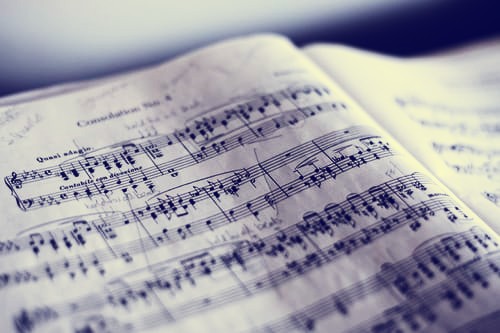
Music education is more than learning to play an instrument or read sheet music; it is a multifaceted experience that fosters intellectual, emotional, and social development. Across the globe, schools and communities emphasize music programs to enrich students’ learning experiences. Music education combines creativity with discipline, offering learners the opportunity to explore self-expression while developing critical life skills. Understanding its benefits demonstrates why music should be a cornerstone of education at all levels.
Enhancing Cognitive Development
One of the most significant benefits of music education is its impact on cognitive abilities. Learning music requires focus, memory, and pattern recognition. Students who study music often develop stronger skills in math, reading, and problem-solving due to the structured thinking involved in understanding rhythm, scales, and harmonies. Research indicates that musical training enhances neural connections, thereby improving memory retention, spatial reasoning, and multitasking abilities. These cognitive benefits extend beyond the classroom, supporting lifelong learning.
Boosting Creativity and Imagination
Music education nurtures creativity by encouraging students to explore sounds, melodies, and musical composition. Improvisation exercises and composition tasks challenge learners to think outside the box, enhancing innovation and imaginative problem-solving. Creativity developed through music can transfer to other disciplines, including art, literature, and scientific endeavors. Students learn to approach challenges with originality and adaptability, skills that are essential in a rapidly changing world.
Fostering Emotional Expression and Mental Health
Singing, playing instruments, and composing music provide powerful tools for emotional expression. Music education teaches students to convey emotions through sound, providing a healthy outlet for feelings such as joy, sadness, or excitement. Participating in music programs has been linked to reduced stress, improved mood, and greater emotional resilience. The act of creating music also promotes mindfulness, helping students manage anxiety and develop coping strategies for everyday challenges.
Building Social Skills and Teamwork
Many music education programs emphasize group participation, such as choirs, bands, or orchestras. Collaborative music-making teaches essential social skills, including listening, communication, and cooperation. Students learn to work together harmoniously, balancing individual contributions with the collective goal of producing beautiful music. These experiences foster empathy, respect, and teamwork—qualities that transcend music and support interpersonal relationships in all aspects of life.
Discipline and Time Management
Learning music requires dedication, practice, and perseverance. Students must set goals, adhere to practice schedules, and commit to continuous improvement. This process instills discipline and time management skills that are transferable to academic work, careers, and personal projects. Mastering a challenging piece or achieving a performance milestone reinforces the value of hard work and persistence, empowering students to tackle challenges in other aspects of life.
Cultural Awareness and Appreciation
Music education exposes students to diverse musical traditions from around the world. By studying classical compositions, folk music, jazz, or contemporary genres, learners gain a deeper understanding of diverse cultures and their respective histories. This exposure fosters cultural appreciation and broadens perspectives, encouraging respect for global diversity. Music education thus becomes a bridge for intercultural understanding, helping students connect with and appreciate communities beyond their own.
Enhancing Language and Communication Skills
Music and language share cognitive pathways in the brain. Music education enhances auditory discrimination, phonological awareness, and rhythm recognition, all of which contribute to improved reading and communication skills. Singing and learning lyrics also develop vocabulary, pronunciation, and expressive abilities. These linguistic benefits illustrate the close connection between music and effective communication, making music education a valuable tool for both academic and personal growth.
Boosting Confidence and Self-Esteem
Performing music, whether in a classroom recital or public concert, builds confidence and self-esteem. Successfully learning a challenging piece or contributing to a group performance gives students a sense of accomplishment and pride. Music education encourages individuals to embrace vulnerability, perform in front of others, and celebrate their achievements. Over time, these experiences reinforce self-assurance and resilience, helping to shape well-rounded and confident individuals.
Music Education and Lifelong Benefits
The skills and habits cultivated through music continue to have a lasting impact well into adulthood. Lifelong engagement with music promotes mental agility, emotional intelligence, and creative thinking. Adults who continue to play instruments, sing, or compose maintain cognitive sharpness and emotional balance. Music education instills habits of practice, reflection, and collaboration that enhance professional performance, personal relationships, and overall quality of life.
Integrating Technology
Modern music increasingly incorporates technology, from digital instruments and recording software to online lessons and virtual ensembles. Technology enhances learning by providing interactive tools for composition, theory, and practice. Students can access tutorials, collaborate remotely, and record performances for feedback. By combining traditional instruction with digital innovation, music education becomes more engaging, versatile, and accessible, preparing learners for contemporary artistic and professional environments.
Embracing Music as an Educational Foundation
Music education is far more than an extracurricular activity—it is a comprehensive approach to developing cognitive skills, creativity, emotional intelligence, and social competence. By engaging with music, students strengthen their brains, express themselves emotionally, build confidence, and connect with others. Schools and communities that invest in music education equip learners with lifelong skills, enriching both individual lives and society as a whole. The transformative power of music makes it an essential component of education, one that nurtures potential and fosters holistic growth in every student.